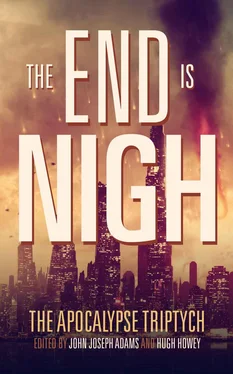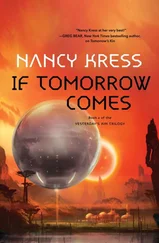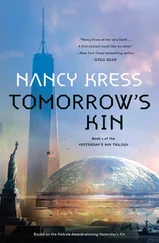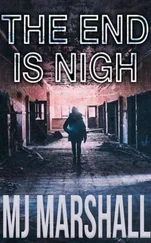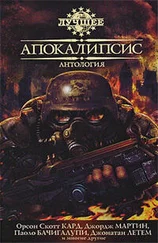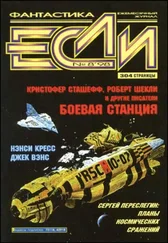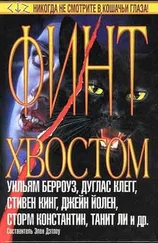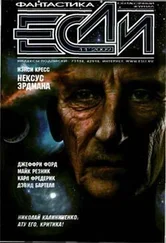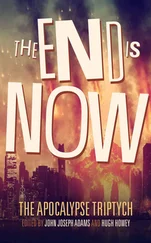Gram coughed a phlegmy cough behind her dusk mask. And screamed in pain again.
Gram was crying by the time Nayima finally brought the bed to rest in its new home beside Mr. Yamamoto’s black sofa and artificial palm tree.
Nayima cursed herself. Why hadn’t she found a way to kill the fleas at Gram’s house instead? What had possessed her? A fierce headache hammered Nayima’s temples, bringing paralyzing hopelessness as bad as she’d felt since the 72-hour flu took over the news.
So they were both crying while Nayima pulled Gram’s bandages away to reveal the black and red angry stink of her wounds, the yawning decay that cratered her back. Nayima could nestle a golf ball in the cavern that grew above her grandmother’s right buttock. Infection had found the sores despite Nayima’s steady cleanings.
“Fuck,” she said. “Fuck.”
Her hands were shaking as she debrided the wound in a clumsy imitation of what Shanice had tried to teach her—the cruel, steady scraping of Gram’s most tender flesh.
And, of course, Gram screamed the whole while.
But Nayima carried on despite the lump clogging her throat, despite her smoke-stinging eyes. Then the infected flesh began to disappear, the smell turned more sterile, the ointments began their healing, the bandages sealed the mess from sight.
And Gram stopped screaming. Stopped whimpering. Only moaned here and there to signal she needed a moment to rest, and Nayima let her rest whenever she could.
Nayima retrieved her jug of boiled water, dipped her sponge in it, and gently washed Gram between her legs, water running in streams down the wrinkled crevices of her thighs. Washed Gram’s downy, thin patch of pubic hair. Checked her for signs of skin irritation from urine, and was thankful to find none. That, at least, was going right.
Then it was time to feed her, so Nayima checked beneath the surgical tape that affixed Gram’s gastric tube near her navel. No infection there either, nothing out of place. Then she filled a bag with Ensure, hung it from the waiting hook on the bed, and watched the tube fill with nourishment as it crawled toward Gram’s stomach.
By then, Gram was already sleeping, as if the day had never happened.
The smoke seemed to clear from the air.
“Thank you, God,” Nayima said.
Mr. Yamamoto had running water, and a state-of-the art grill on the patio, if only she could find food worthy of it. He had cleaned out his kitchen cabinets before he left, she remembered; he hadn’t left a mess. No rotting odors from his fridge, no toilets left unflushed.
And no fleas. Mr. Yamamoto’s house was a vacation.
Nayima checked on Gram regularly, turning her every two hours. She moved her car to Mr. Yamamoto’s pristine garage, which looters had overlooked. She even found a flashlight and an empty gas can, which she squeezed into her trunk. She turned and fed Gram again.
The sky was dark long before sunset.
The coyotes were fooled by the dark skies and the sirens. Just before five o’clock, a coyote chorus rose, sharp through the house’s walls. There were more coyotes all the time. Maybe some left-behind dogs had joined the coyotes, howling their grief. They sang all around her, as if Foothill Park were ringed by wilderness.
Nayima decided she wasn’t afraid. Not yet. Maybe one day. Maybe tomorrow.
She sat on the front porch of Mr. Yamamoto’s house with a warm beer, her only indulgence, one of her last six in an eighteen-pack she’d found in a neighbor’s rec room. She’d rather have weed, but it still helped her forget what needed forgetting. A little. For a time. Nayima stared back at Gram’s narrow two-story townhouse across the street. Their jacaranda tree had showered the driveway with purple buds. Would her tree survive the fires? Would she come back and find beauty in the ruins to show her children one day?
She was ready to go back inside when a siren squawked close by, and a police cruiser coasted in front of her, so mud-caked she could barely see its black and white paint. Unnecessarily, the red flasher came on in a light show against the wall.
The man who climbed out of the car was stocky, not much taller than she was, with sun-browned skin and dark hair. She was glad when she saw his town police uniform, which seemed friendlier than a soldier’s. He looked about her age, as young as twenty-one. She had seen him before, perhaps during the evacuation. Like most cops, he wasn’t smiling. Sanchez , his name-tag read. Yes, he had been here before.
She expected him to say something about her sitting outside in her underwear, but he didn’t seem to notice. Maybe he saw people half naked on a regular basis.
“You cleaning this place up?” he said, incredulous.
A week ago, fast food wrappers and debris had covered the grass in the green belt, where she and Shanice and their friends had played until they were too old to play outside. She hadn’t meant to clean it all, but a little each day had done it, her therapy. She hadn’t risked hurting herself to climb the palm tree to take down the flapping shirt and jeans. But she might one day. Trash still hugged the fence around the pool. She hadn’t gotten to that.
“I grew up here. I want it to look right.”
“Don’t you have anything better to do?” he said.
“My car is packed with everything I need.”
“Then why are you still here?”
She suddenly remembered meeting him before. He had come with the team from the hospital that examined Gram to make sure she only had cancer and not the 72-Hour Flu. Mr. Yamamoto and other neighbors had reported that Gram had been sick for a long time. This cop might have said his grandmother had raised him too. Nayima couldn’t quite remember. Her memories that day had been frozen out from her terror that they would take Gram away.
“My grandmother’s got cancer,” she said. “Remember?”
Gunfire crackled east of them. Sometimes the rounds were from soldiers, sometimes random rage. Looters might come tonight.
“You have a gun?” he said.
The earnestness in his voice made her anxious. “Of course.”
“What kind?”
“A .38?” She tried not to say it like a question. It was Gram’s Smith & Wesson she bought in her old neighborhood, where Nayima’s mother had lived and died. A world away.
“Ammo?”
“A box. And what’s in… the chamber.” She’d fumbled, trying to remember gun terms.
“You know how to shoot one?”
“Is this a test?”
She was sorry as soon as she’d said it. His face deflated; maybe he thought they’d been having a friendly conversation. “A gun’s no good if you can’t use it,” he said. He ripped an orange page from his pad, stuck it to Mr. Yamamoto’s window. Ugly and permanent.
REMOVAL ORDER , it read.
“Forty-eight hours,” he said. “Anyone still here… it won’t be pretty.”
“Are they burning J next?” she said. The county had divided neighborhoods into lettered sectors. Foothill Park was in Sector J, or so all the notices kept saying.
“Yes. Anyone in J better be gone in forty-eight.”
“Is it working?” she said. “Does burning stop it?”
“If it lives on things we touch, why not?” he said. “Don’t ask me. I pass out stickers.”
But that wasn’t all he did. She noted the handgun strapped around his waist, the semi-automatic slung across his chest.She wondered how many people he had killed.
“I listen to the car radio,” she said. “People say it’s not working.”
“So we should sit on our asses and do nothing?”
“Maybe you could teach me,” she said. “How to shoot.”
He stopped and turned slowly, profile first, as if his body followed against his will. A sneer soured one side of his face, but it was gone by the time he faced her. “Does it look like I have time for private lessons?”
Читать дальше
